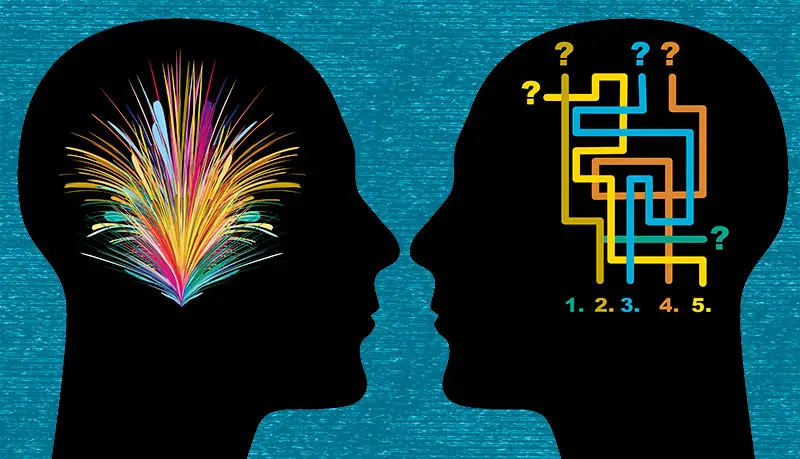Guest writer for Wake Up World
When I went through the spiritual experience I recently wrote about, a part of me simply couldn’t handle it. Some of the events that unfolded in the wake of The Experience — aka my kundalini awakening — made absolutely no sense to my cognitive mind, which I have come to trust.
How can you dissolve clouds with your intention? How can you telepathically communicate with people and animals? How can objects speak to you? How is it possible that sand was moving around us when nothing in the sand was moving? How is it that I can suddenly stay underwater without breathing three times longer than I could a month ago? How did my perfectly cognitive scientist friend Dennis suddenly become psychic?
And why did this all happen?
I was asked these kinds of questions of my colleague Rachel Naomi Remen MD, Clinical Professor of Family and Community Medicine at UCSF School of Medicine. She said, “Perhaps understanding how and why are the booby prize”.
Ouch. What if I’ve spent my whole life in search of something that really doesn’t matter? Double ouch.
The Quest for Understanding
The last eight years have been a journey of trying to explain that which is hard to explain. I was very proud of myself for researching and writing Mind Over Medicine, which offers scientific proof explaining the how and why of the body’s seemingly magical ability to heal itself with what doctors like to call “spontaneous remissions”; and The Fear Cure about the scientific proof that fear not only makes you miserable, it makes you sick, and how courage can heal. I can prove this theory with cold hard data, and I can explain the physiological mechanism by which this happens. This makes my cognitive mind happy and leaves me feeling safe with how the world works.
Then something like this “kundalini awakening” happens (I explained my experience here) and suddenly mystical things are happening which defy those pesky laws of physics. This makes my cognitive mind go batty and leaves me feeling very very unsafe.
What if everything I thought was true about the world really wasn’t? Then who am I? What can I hang my hat on? What do I get to hold onto?
Cognitive Validators vs. Intuitives
When Rachel Remen and I were talking about this, she said:
Lissa, we each have a part of ourselves that we trust — our frontrunner. When we come into a new situation, we send different parts of ourselves in first to check out the scene. The cognitive person sends in their cognitive self. Who’s there? How reliable are they? Let’s suppose it’s not the cognitive mind that you trust? What if you trust the heart? What if you send your heart in as the frontrunner? What’s the vibe in here? Are they loving? Are they connecting? Are they competing?
The thing that’s difficult is that a smaller part of you cannot validate a larger part of you easily. So if you’re a cognitive validator, you can’t validate the soul with cognition. You can validate cognition with the soul, but not the opposite. We must use the cognitive mind as a servant of the soul rather than the soul being okayed by the cognitive mind.
Rachel says that, as children, when we don’t feel safe, we go cognitive. It makes us feel like we have some control over the world. She went on to say”
In our culture, we trade off mystery for mastery, but in doing so, we choose deadness over aliveness. What stops the world is our quest for certainty. To the cognitive mind, everything has to be complete. What you’re looking for is something that is not growing, something that is not changing, we swap certainty for aliveness. These are bad trades. These trades don’t make us happy. When we make these trade-offs for certainty or mastery, we disconnect from the soul.
Oy. Triple ouch.
10 Ways Your Soul Guides You in Daily Life
In our teleclass 10 Ways Your Soul Guides You In Daily Life, Rachel came out in front of 21,000 people as a “flaming mystic”. We explained to our class that Rachel and I view the world in very different ways. I am a cognitive validator. I feel safe when I understand things, so when I went through The Experience with April and Dennis, my soul felt total ecstasy, Divine Oneness, union with God consciousness, but to the smaller part of myself, my whole world felt threatened. It’s funny, really, when you think about it. Dennis and I are both scientists, so to have the psychic experience happen to us must be hysterical to the Cosmos. I can just see Universal Intelligence plucking us up like tulip bulbs and saying, “Hey, look at these two. Let’s play a little game and blow their cognitive minds to smithereens!”
Dennis and I were blown radically open, humbled by what we don’t understand and can’t explain.
Rachel, on the other hand, has no need to explain the unexplainable. It’s easier for her to be comfortable with uncertainty, as is the case for many mystics and intuitives. Frankly, I’m jealous. I wish my cognitive mind would just get the hell outta Dodge and leave me with my unexplainable ecstasy.
I’ve since spoken to many people who lead with their intuition and have trouble understanding us small-minded cognitive validators. They’re comfortable with magic. It thrills them, actually. They don’t need to be able to explain mystery, and they’re in awe at what is possible when we don’t need to explain how or why.
I think I agree with Rachel. Perhaps how and why are the booby prize, and when we trade mystery for mastery, it’s a bad trade.
I feel incredibly blessed to have been shown how wrong I was. My intention from here on is to be outrageously open to the mystery. It may be a rocky road, because my cognitive mind will still try to explain what it can. But I hope it will let me move beyond it, without putting up so much resistance to that which is beyond explanation.
Are You A Cognitive Validator or a Flaming Mystic?
I’d LOVE to hear your perspectives and learn from you all. Please share your thoughts and stories.
Trying to free myself from my small mind,
Recommended articles by Lissa Rankin:
- The Unmistakable Link Between Unhealed Trauma and Physical Illness
- Satisfying Our Emotional Needs Without Being Codependent
- Relationships on the Spiritual Path
- How to Make Your Body Ripe for Miracles
- Are You “Spiritual But Not Religious?”
- 10 Fun Ways to Reduce Your Cortisol Levels
- 6 Stories To Make You Believe In The Power Of The Mind To Heal You
- 7 Tips For Finding Your Tribe
- Holding Space When Someone Is In Pain
- 10 Surprising Things That Trigger “Fight-Or-Flight”
About the authors:
Lissa Rankin, MD is a mind-body medicine physician on a grass roots mission to heal healthcare, while empowering you to heal yourself. She is the founder of the Whole Health Medicine Institute training program for physicians and healthcare providers, and the New York Times bestselling author of the books Mind Over Medicine: Scientific Proof That You Can Heal Yourself (2013), The Fear Cure (2014), and The Anatomy of a Calling (2015).
Lissa blogs at LissaRankin.com and created the online community HealHealthCareNow.com. She is also the author of several other books, a speaker, a professional artist, an amateur ski bum, and an avid hiker. She lives in the San Francisco Bay area.
Connect with Lissa on Facebook and Twitter, or visit LissaRankin.com.

If you've ever found value in our articles, we'd greatly appreciate your support by purchasing Mindful Meditation Techniques for Kids - A Practical Guide for Adults to Empower Kids with the Gift of Inner Peace and Resilience for Life.
In the spirit of mindfulness, we encourage you to choose the paperback version. Delve into its pages away from screen glare and notifications, allowing yourself to fully immerse in the transformative practices within. The physical book enriches the learning process and serves as a tangible commitment to mindfulness, easily shared among family and friends.
Over the past few years, Wake Up World has faced significant online censorship, impacting our financial ability to stay online. Instead of soliciting donations, we're exploring win-win solutions with our readers to remain financially viable. Moving into book publishing, we hope to secure ongoing funds to continue our mission. With over 8,500 articles published in the past 13 years, we are committed to keeping our content free and accessible to everyone, without resorting to a paywall.









